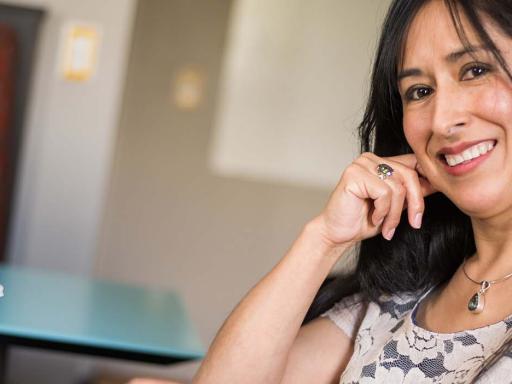MKCM 101: Introduction to Video Storytelling and MKCM 102: Foundations of Visual and Digital Design
Explore Digital Media
Our online Bachelor of Science in Digital Media program equips students with the essential skills and knowledge needed to excel in the realm of digital storytelling. Emphasizing a deep understanding of audience dynamics and messaging objectives, this program empowers students to craft compelling digital content that seamlessly blends creativity with business and marketing strategies.
Students will actively engage in hands-on projects, gaining expertise in evaluating and delivering branded, strategic, and responsible content. With a deliberate emphasis on building an integrated portfolio and fostering career exploration, students will have the chance to exhibit their skills in digital media and content creation, strategic thinking, and storytelling to prospective employers.
Finish your program faster with credit for prior learning and experience.
Differentiate your degree and get your resume noticed with an added certificate. Speak with your advisor for information.
Build Your Career
Future Having a degree can increase both your immediate job prospects and your long-term career potential. With this cutting-edge degree from Champlain College Online, graduates will be prepared for a variety of careers, utilizing digital media content strategies to respond to the needs of diverse audiences, clients, and projects.
Program Curriculum
Champlain's online business management courses encompass the top skills needed by today's business professionals. Graduates of the program are required to complete the following courses.
Digital Media Core Courses (21 credits)
Marketing & Web Development Core Courses (18 credits)
Portfolio and Capstone Sequence (6 credits)
Program Electives (9 Credits)
- Take 9 credits from DGMD, WEBD, MKTG, or MKCM courses
General Education Courses (42 credits)
General Electives (24 credits)
This course provides students with the knowledge and skills required to create engaging digital media content by focusing on foundational techniques and skills. Students will utilize various digital formats, such as video, audio and interactive content to create digital experiences for specific audiences and purposes. Emphasis will be placed on understanding audience requirements, devising compelling storylines, and making use of a wide range of digital formats. Students will learn how to plan and create a compelling portfolio of their work.
Prerequisites
In this course, students will explore real time digital media production as they create and produce live video, audio and interactive digital experiences for diverse audiences. Emphasis will be placed on understanding the unique challenges and opportunities presented by real time media, as well as the importance of audience engagement and interaction. Students will complete projects showcasing their ability to produce and distribute engaging real time digital media content as they continue to develop their portfolio.
Prerequisites
MKCM 101: Introduction to Video Storytelling and MKCM 102: Foundations of Visual and Digital Design
In this course students will gain practice with emergent technologies that are transforming the digital media landscape. Students will learn how to ethically and effectively utilize these technologies to support marketing and business strategies as they explore digital media content that engages audiences. Emphasis will be placed on evaluating the appropriateness of emergent technologies and how to stay current in an ever-evolving digital landscape as students continue to build their portfolio of work.
Prerequisites
MKCM 101: Introduction to Video Storytelling and MKCM 102: Foundations of Visual and Digital Design
This class is designed to provide students who have little or no digital video production knowledge with an introduction to methods and strategies for production of digital video stories. Using the art of telling a story, the class will create educational, informational or personal experience video productions utilizing audio, video, storyboard, scriptwriting and digital editing techniques
This course introduces students to the fundamental language of visual form and basic skills including the industry-standard software applications used to create, acquire, and manipulate digital images. Students will learn about two-dimensional composition and design, color theory and terminology, and will apply these principles to a variety of basic design projects. Color, form and content will be explored in terms of cultural, psychological, physiological, and historical aspects.
This course offers a holistic approach to designing promotional materials that effectively communicate brand messages across digital and print media. Students will learn essential design elements and apply branding considerations to various formats. Through practical assignments, students will conceptualize, design, and produce a range of promotional materials while learning approaches to effectively work with design and production teams and following industry-standard practices. Some basic art supplies will be required.
In this hands-on content production course, students create, adapt, and evaluate social media content, applying principles of brand identity, audience targeting, and platform-specific techniques to build engagement. Course topics include storytelling, visual design, authenticity, and the ethical use of analytics and AI to inform content strategy. Throughout the course, students refine their skills through iterative work, feedback, and analysis to support effective and responsible engagement across current and emerging platforms.
This course introduces the core terminology and principles of marketing. Students learn about the marketing mix (product, price, place, and promotion), market segmentation, and how external factors such as the economy, technology, culture, and competition influence marketing decisions. The course also examines how marketing fits within an organization and contributes to business success, along with how ethical considerations, cultural awareness, global trends, and social responsibility shape marketing practices across industries. No prior business experience is required.
This course explores the psychological and behavioral factors that influence consumer decision-making. Through a combination of theoretical and applied approaches, students will examine how individuals acquire, process, and use information to make purchasing decisions. Topics include the impact of social and cultural factors on consumer behavior, the role of emotions in decision-making, and the effects of marketing and advertising on consumer choices. Students will apply their knowledge of consumer behavior to the development of buyer personas for an organization.
Prerequisites
Complete MKTG-115
Effective branding can help an organization differentiate itself from competitors, build brand loyalty, and establish a strong reputation. In this course, students will learn how to create, develop, and manage a brand, from initial concept and positioning to execution. An emphasis on ethical practices in branding, along with an exploration of technological innovation on branding and the branding process, will provide students with skills to build and maintain a brand that is innovative and upholds strong ethical standards.
Prerequisites
Complete MKTG-210
From storyboard to form creation, students walk through the steps to create a basic four to five-page website to specification in this course that introduces HTML5 and CSS. Hands-on assignments reinforce skills development and best practices in design: navigation, column layout, image editing and usage, fonts and tables.
Websites must balance technology with aesthetics. In this course, students study web design patterns and personas, and then create a wireframe storyboard with at least four panels designed for a standard desktop view. Students use Mockups 3.
Prerequisites
Complete MKCM-102 or WEBD-125
Websites have three functions - to facilitate, enable and persuade - and are only useful if they can connect people and achieve definite goals. In this course, students learn to understand the concept of usability, and the roles of interaction, users, communication and collaboration as well as how to evaluate usability, and observe and test users.
Prerequisites
WEBD-215 OR SDEV-230
In this 7-week intensive workshop, students will apply their accumulated knowledge and skills in digital media to a significant project, while also honing their professional portfolios. Working individually or in small groups, students will develop and complete a project that demonstrates their proficiency in digital media concepts and techniques. Students will also participate in portfolio critique sessions, receive guidance from instructors, and listen to guest lectures from industry leaders to ensure their portfolios are polished and market-ready.
Prerequisites
Completion of 105 credits.
In this course, students demonstrate their expertise in digital media by applying their skills in content creation, design, and strategy to develop and execute a digital media project. The course will emphasize the importance of adapting to client needs and evolving project requirements, preparing students for the digital media industry as they create a final product for their portfolio. Throughout the course, students will receive feedback from both their peers and faculty to ensure continuous improvement.
Prerequisites
DGMD 410: Advanced Project and Portfolio in Digital Media
In addition to the following requirements, students must also complete 3 Credits of a General Education Elective (Any ARTS, COMM, CRIT, ECON, ENGL, HIST, MATH, PHIL, PSYC, SCIE, SOCI, MKCM 120, CRIM except CRIM-225)
This course introduces students to the foundational concepts needed to communicate effectively in writing for academic study and professional development. Students will also learn to read critically to evaluate an author's message. Students will be introduced to rhetorical modes and their role in the development of written communication. Students will also learn how to use revision strategies to create written communication that meets its intended purpose for its intended audience
This course builds on students' proficiency in the writing process and rhetorical modes to introduce the use of sources in written communication. Students will practice information literacy as they learn to determine information needs from sources, develop effective search strategies, and incorporate sources in written communication, legally and ethically.
Prerequisites
Complete ENGL-100
Starting with a frame of human communication as a dynamic system of interactions in which people make choices that impact their relationships, other people, and themselves, students will define theory-informed communication concepts and processes, and critically examine how they apply to everyday life across a variety of contexts. Students will reflect on how the theory, concepts and processes apply to their own lives in becoming competent communicators who are knowledgeable, skilled, and versatile.
This course examines the principles of effective small group interaction. Students will analyze group development stages and small group roles. They will identify and evaluate communication skills that enhance small group cohesion and problem-solving. Students will explain how conflict affects group processes and compare face-to-face versus digital collaboration environments. These skills prepare students to participate effectively in group settings across academic, professional, and community contexts.
Students will learn and apply critical inquiry skills to analyze persuasive communication created by others and to develop persuasive communication/arguments of their own to solve problems in professional, civic, social, and personal contexts. Specifically, students will learn to recognize fallacies in logic; apply inductive and deductive reasoning strategies to the interpretation and development of persuasive communication; evaluate the validity of sources; and develop logically sound persuasive communication. Students will explore the roles of self-awareness, empathy, and ethics in the context of critical inquiry and the development of arguments.
Prerequisites
Complete ENGL-110.
This course is an historical overview, and examination of the evolution of digital, film, and print media, and their functions. Students will identify and analyze contemporary problems of the media such as the legal, social, economic and psychological implications of their relationships with society. They also will examine the ways in which marketing and PR professionals utilize the mass media channels to reach their intended target audiences.
This course explores the complex and evolving relationship between human beings and technology. Through a multi-disciplinary approach that draws on fields such as sociology, psychology, philosophy, and history, students will examine the ways in which technology has shaped human culture, identity, and values, as well as how humans have influenced and continue to influence the development, adoption and use of technology.
Mathematical reasoning, when applied to everyday and professional lives, has two dimensions: logic for deterministic situations and probabilities for non-deterministic situations. This course aims to help students develop these mathematical reasoning skills.
This course introduces students to basic statistics for data literacy. With a focus on exploring real-world data, students will interpret numerical information and utilize the tools necessary to complete the entire statistical process: designing a study; gathering, organizing, and analyzing sample data; and making inferences about a population. Students will demonstrate data-driven decision-making and effective communication of numerical data.
Introduces students to the biochemistry and physiology of nutrition and exercise. Emphasis will be placed on human body systems such as musculoskeletal, digestive, respiratory and circulatory, and their relationship to nutrition and fitness. Students will also study the biochemistry of energy conversion as it relates to exercise physiology. Laboratory sessions are designed to reinforce, by a hands-on approach, the principles discussed in lecture. Course includes two laboratory hours per week.
Students will develop the ability to apply scientific methods to understand the natural world, to identify scientific aspects of daily life, and to evaluate the quality of scientific information based on its source and the methods used for its generation.
In this course, students will gain an introduction to classical mechanics and learn about motion, force, energy, and momentum. The course covers vectors, scalars, and coordinate systems, as well as kinematics in one and two dimensions, Newton's Laws of Motion, circular motion, and kinetic energy and work. Students also learn about potential energy and energy conservation, collision theory, rotational motion, moment of inertia, torque, rotational dynamics, and angular momentum.
This course will introduce students to major streams of social justice thought, including historical social justice movements, theoretical problems having to do with social equality, personal freedom, marginalization, and stigmatization, and the ways in which civic and professional communities respond to these issues.
With pressure and release, a window opens and closes, recording light on a sensor. The simple action captures the instinct, judgement, and skill of the person behind the lens. This class will begin a study of the art and craft of photography. Students will develop their vision and their understanding of how to achieve it. Solid skills will be learned and many doors will be opened.
A survey of the continuing change experienced in art since the 15th century. Students will examine how an image is achieved as well as the significance of the subject represented. Individual inquiry concerning the nature of art is encouraged.
Students learn to appreciate films through the critical analysis of various elements of mise-en-scene, cinematography, editing and sound. The course introduces the conventions of classical Hollywood cinema, considers the work of one major director (auteur), and surveys selected international and independent films. Students view and discuss films each week.
Students in the course will explore the cultural history of the music genre broadly referred to as rock. Students will explore the social, economic and political contexts that are influenced by and that influenced each style in the United States. By listening, watching, reflecting upon, discussing and writing, students will explore how music takes on meaning, personally, and culturally. Topics and themes include the relationships between and among gospel, country, funk, folk, disco, rap and hip hop; the role of business and technology in those relationships, and political or transgressive elements of rock music.
Specific application of common tools for writing in the working world. Students will be instructed in rhetorical strategies of professional writing including style, report formats, editing, document design, and integration of visual aids. Students will complete a semester-long writing project; oral and written reports associated with the process of problem-solving within the project will be included.
Prerequisites
ENGL-112 or COR-125
Students will learn how to create conditions for successful conflict engagement, a necessary skill for any professional. The course focuses on the foundational capacities to remain calm and connected with oneself and others. In this state students can access helpful ideas and responses and be their best selves regardless of environment. Improving facility for conflict creates stronger relationships and reduces fear. By the end of the course, students will understand that disagreement and difference can become a source of personal and interpersonal growth.
In this course, students will explore and apply writing principles and techniques to effectively interpret and write technical workplace materials. Students will enhance and gain skills to communicate business and technical information by producing instructions, describing processes, applying document design elements, creating and integrating illustrations, researching and writing proposals and formal reports, and presenting content for decision-makers.
This course introduces students to the fundamentals of substantive criminal law. With this foundation for understanding the legal system students will identify the essential elements of crimes, including the criminal act, criminal state of mind, and jurisdiction. They will examine the rationale underlying criminal law, factors affecting criminal responsibility, and legal defenses. By analyzing real-world scenarios, students will develop skills to distinguish lawful from unlawful actions and prepare for advanced studies or careers in criminal justice.
This course focuses on the rules and procedures governing how the American criminal justice system must process individuals suspected, accused, and convicted of law violations.
In this course, students will explore the theory and fundamentals of criminal investigation, emphasizing practical applications for evidence handling and case development. Students will review basic responsibilities of investigators and protocols for report writing, evidence collection, and preparation of cases for trial. The curriculum examines investigative approaches for various crime categories, including violent offenses, property crimes, terrorism, and hate crimes, while introducing comparative perspectives from diverse legal systems.
Prerequisites
Take CRIM-120.
Principles of Economics introduces the fundamental concepts of economics - the study of how people manage resources, and how they react to scarcity. This course focuses on both microeconomics (the behavior of consumers and companies) and macroeconomics (large-scale economic factors such as employment and interest rates), so that you'll gain a broad understanding of how a modern market economy functions, how decisions in business settings are informed by economics, and how economics applies to your everyday life.
Students will study important themes in the social history of the United States since the Civil War. This course allows students to expand their critical thinking skills through an examination of primary and secondary sources. Themes might include: the evolving status of women; the immigrant experience; the concept of the American dream; the paradox of freedom vs. slavery; the minority experience; the tensions between social classes. Students will be evaluated primarily on writing assignments.
In this course, students will explore broad, foundational knowledge in psychology, including its history, major theorists and a survey of psychology subfields such as developmental, cognitive and social psychology. Students will also describe and assess the role of ethics and social responsibility in the study and application of psychological theory and practices.
In this class, students will explore how social relationships, groups, societies and culture develop and change over time. From a sociological theory foundation and employing the sociological imagination, students will examine the impact of social structures, institutions, and systems on individual lives. Students will apply sociological research methods to investigate sociological phenomena in their own lives.
Starting with the first summer term, new students will have 3 credits of "advanced electives" instead of 9. Those other 6 credits will be rolled into General Electives, making that credit count 30 instead of 24.
Starting Fall 2026 the following changes will be made to the General Education curriculum:
- New category, Integration: CRIT 100 Mindsets for Modern Learning (3 credits)
- Social Science and Arts & Humanities categories combine, still just 6 credits required.
- General Education Electives: credits increase to 6
Additional Program Details
Graduates of the digital media bachelor's online program will demonstrate the following industry-specific skills, knowledge, and competencies:
- Determine the audience, content, purpose, goals and success measures of a messaging project or initiative (Evaluate).
- Identify and critically evaluate the impact of digital media on society, culture, and ethics to inform responsible media production and consumption (Inquire and Evaluate).
- Create compelling narratives in diverse digital formats for specific audiences and purposes to persuade, educate, inform or entertain (Create).
- Adapt to the changing technical environment of digital media through research, experimentation, and application of emergent platforms (Create and Apply).
- Identify and differentiate how digital media is used within varying business models and marketing strategies to meet project and/or client needs (Analyze and Evaluate).
Design your own degree and enhance its value and focus by adding a certificate. Adding a certificate allows you to develop specialized skills, strengthen your résumé, and tailor your education to align with career goals. Choose from the undergraduate or graduate certificates on this page.
Note: To earn a certificate, you must speak with your advisor first. You must be officially enrolled in the certificate program before you complete the required courses in it — coursework completed prior to enrollment cannot be applied later, and certificates may not be added retroactively. Careful planning with an advisor is essential to ensure all policies and timelines are met.
Our admissions team seeks to admit students who:
- Demonstrate a solid academic foundation - a minimum 2.5 GPA is our recommendation, though exceptions may be made on a case-by-case basis for those who demonstrate a potential for academic success in other ways.
- Possess an aptitude for success in an online learning environment.
- Exhibit the ability to make a positive contribution to the Champlain College Online community.
To learn more about submitting transcripts, or requirements for home-schooled students, those educated abroad or returning students visit our Undergraduate Admissions page.
Our transfer credit evaluation team works hard to ensure you get the transfer credits you deserve, from a variety of sources including prior college credits, work experience and training, military training and experience, and more. Our goal is to help you graduate from Champlain College Online as quickly and affordably as possible. Visit our Transfer Credit Options page to learn more.
Champlain College Online's digital media faculty, led by Elaine Young, PhD, are expert practitioners in the field. Their industry expertise ensures that our curriculum is aligned with the needs of employers, and reflects the skills today’s marketing and communication professionals need for success. Classes led by our seasoned experts will give you real-world insight into the field, and create a rich community of career-focused learning.
Tuition & Costs
Online Undergraduate Tuition Fall '25 - Summer '26
Tuition & Costs
Online Undergraduate Tuition Fall '26 - Summer '27
* Alumni is defined, for this tuition rate, as any degree program graduate from Champlain College or Champlain College Online.
** Veteran rate effective Spring 2025, not retroactive
See the undergraduate cost of attendance and fees here
Affordability and Paying For Your Education
We provide a number of options to make your online education affordable, including preferred tuition for alumni, associate degree graduates, community college graduates, and military.
What Can I do With a Degree in Digital Media?
The digital media industry represents a dynamic and rapidly expanding sector, attracting a wide array of enthusiastic professionals. This field anticipates significant job growth in various related roles. Among these roles are positions such as social media managers, public relations specialists, and marketing experts, encompassing a broad spectrum of career opportunities.
As of 2021, the digital media sphere boasted over 1,700,000 jobs in these and associated fields, and this number is poised to surge by an impressive 12.7 percent by 2026. This expansion is projected to result in an average of about 115,800 new job openings annually. These opportunities stem from a combination of industry growth and the need to replace those making career changes or retiring.
https://www.bls.gov/ooh/media-and-communication/home.htm
Career Possibilities for Digital Media graduates include:
- Digital Media Specialist
- Social Media Specialist
- Web Designer
- Brand Associate
- Content Marketing Specialist
- Digital Marketing Specialist
- Public Relations Specialist
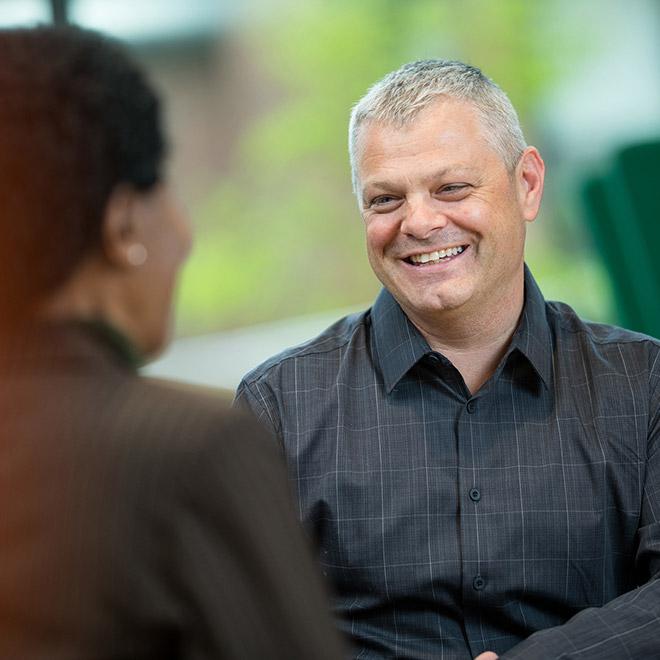
Academic Excellence and Recognition
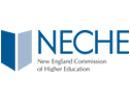
Regionally accredited by the New England Commission of Higher Education
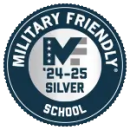
Designated as a Military Friendly School for our commitment to the military community
Ranked among the best by Tech Guide for game design and computer science
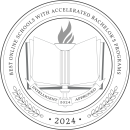
Named the among the best schools with accelerated bachelor's degrees by Intelligent.com
Meet the Program Director
Elaine Young, PhD
- Accounting (Certificates, A.S., B.S., M.S.)
- Analytics (Certificates, M.S. Programs)
- Business (Certificates, A.S.,B.S.,MBA)
- Digital Marketing (B.S.)
- Digital Marketing and Technology (M.S.)
- Digital Media (B.S.)
- Esports Management (B.S.)
- Finance (Certificates, A.S., B.S.)
- Healthcare (all programs)
- Human Resource Management
- Leadership (Organizational and Digital Transformation)
- Management Information Systems
- Marketing (M.S.)
- Marketing Analytics (M.S.)
- Marketing & Communication (B.S.)
- Marketing Management (B.S.)
- Positive Organization Development Certificate
- Positive Organizational Psychology & Development
- Project Management
- Public Administration
About
Dr. Elaine Young is the Program Director for all business programs, and Curriculum Innovation Faculty Lead, at Champlain College Online.
As chair, Dr. Young manages the faculty, curriculum, and assessment for undergraduate and graduate programs in the business programs as well as developing and teaching courses. As Curriculum Innovation Faculty Lead, Dr. Young supports creation of new curriculum offerings that serve both the needs of adults continuing their education and employers who need educational opportunities for their employees. Prior to her leadership role at Champlain College Online, Dr. Young has been part of the Champlain College community since 2000 as a professor and faculty advisor for traditional on-campus students. She is a HubSpot Educator and a Certified Appreciative Advisor.
Dr. Young has a Ph.D. in Organizational Management from Capella University, where her dissertation research examined technology use and adoption of college students. In addition, she holds an M.S. in Internet Strategy Management from Marlboro College, a B.S. in Communication and Public Relations from SUNY Brockport and an A.S. in Communication from Genesee Community College. Dr. Young has over ten years of experience in the Marketing and Public Affairs profession, specializing in nonprofits. She is the author of “Tuned-in Family: How to Cope, Communicate and Connect in a Digital World” (2014).
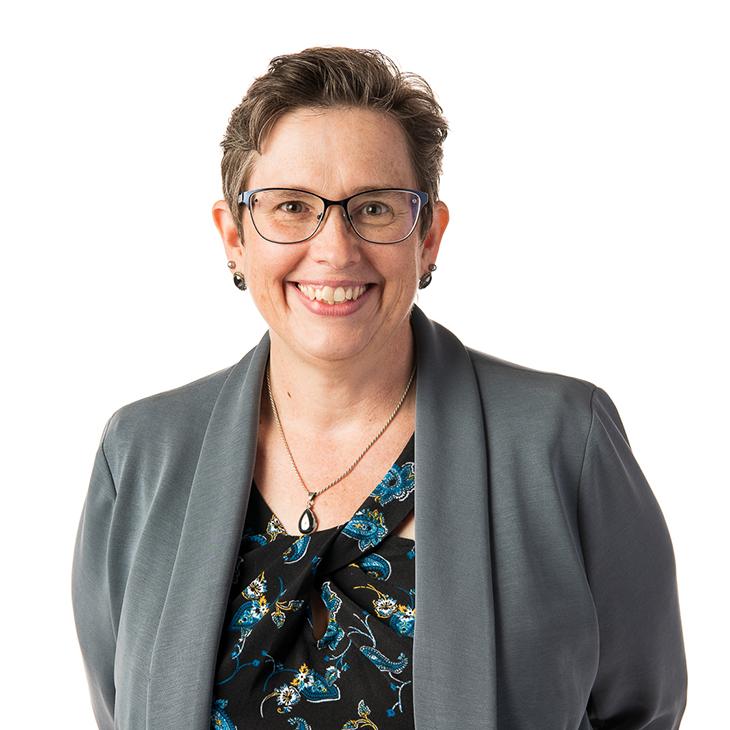
Frequently Asked Questions
A digital media degree covers graphic design, video production, animation, web development, and digital marketing, preparing you for careers in creative and tech-driven industries. You’ll explore these digital media essentials in the online digital marketing master’s at Champlain College and develop a powerful creative portfolio to showcase your practical expertise to potential employers.
A bachelor’s in digital media provides creative and technical skills, career flexibility, high job demand, and opportunities in graphic design, animation, web development, and digital marketing. Champlain College’s digital marketing master’s that covers the essentials of digital media, along with the flexibility of a fully online degree, to give you a professional edge in the marketing world and beyond.
After a bachelor’s in digital media, you could pursue a Master’s in Digital Marketing, Graphic Design, Animation, Media Studies, or an MBA to expand career opportunities and specialize further. Champlain College offers a number of online marketing programs, including a digital marketing master’s, master’s in marketing, and a master’s in marketing analytics.
You May Also Be Interested In
Learn More About The BS in Digital Media Program
Learn what you can expect from our online bachelor's in digital media program.

Download Program Guide
I acknowledge that, by clicking the "submit" button, I am giving my express written consent to Champlain College and its representatives to contact me about educational opportunities via email, text, or phone, at the phone number above, including my mobile phone, using an automatic dialer, or pre-recorded message. Message and data rates may apply. I understand that my consent is not a requirement for enrollment, and I may withdraw my consent at any time.



